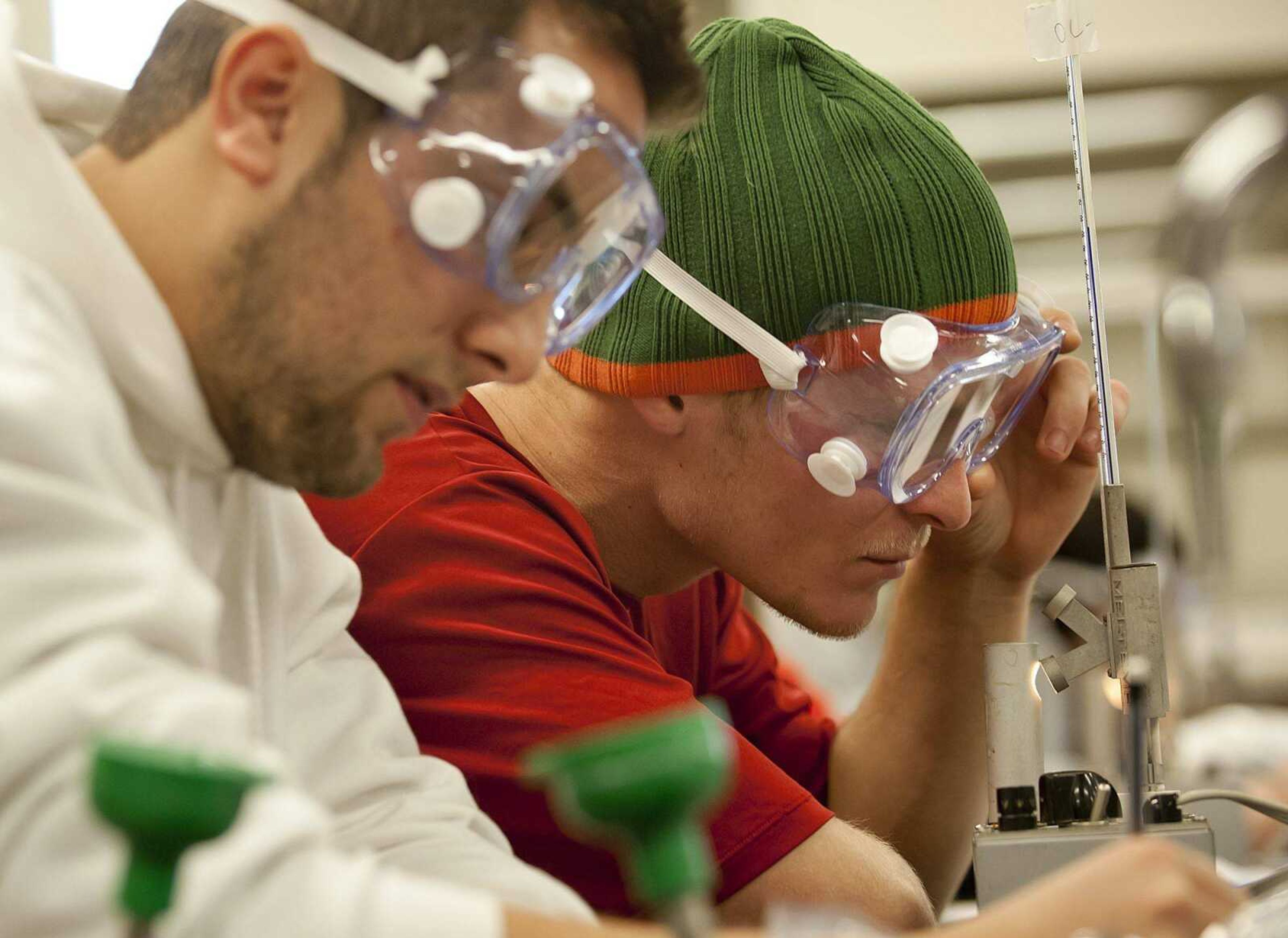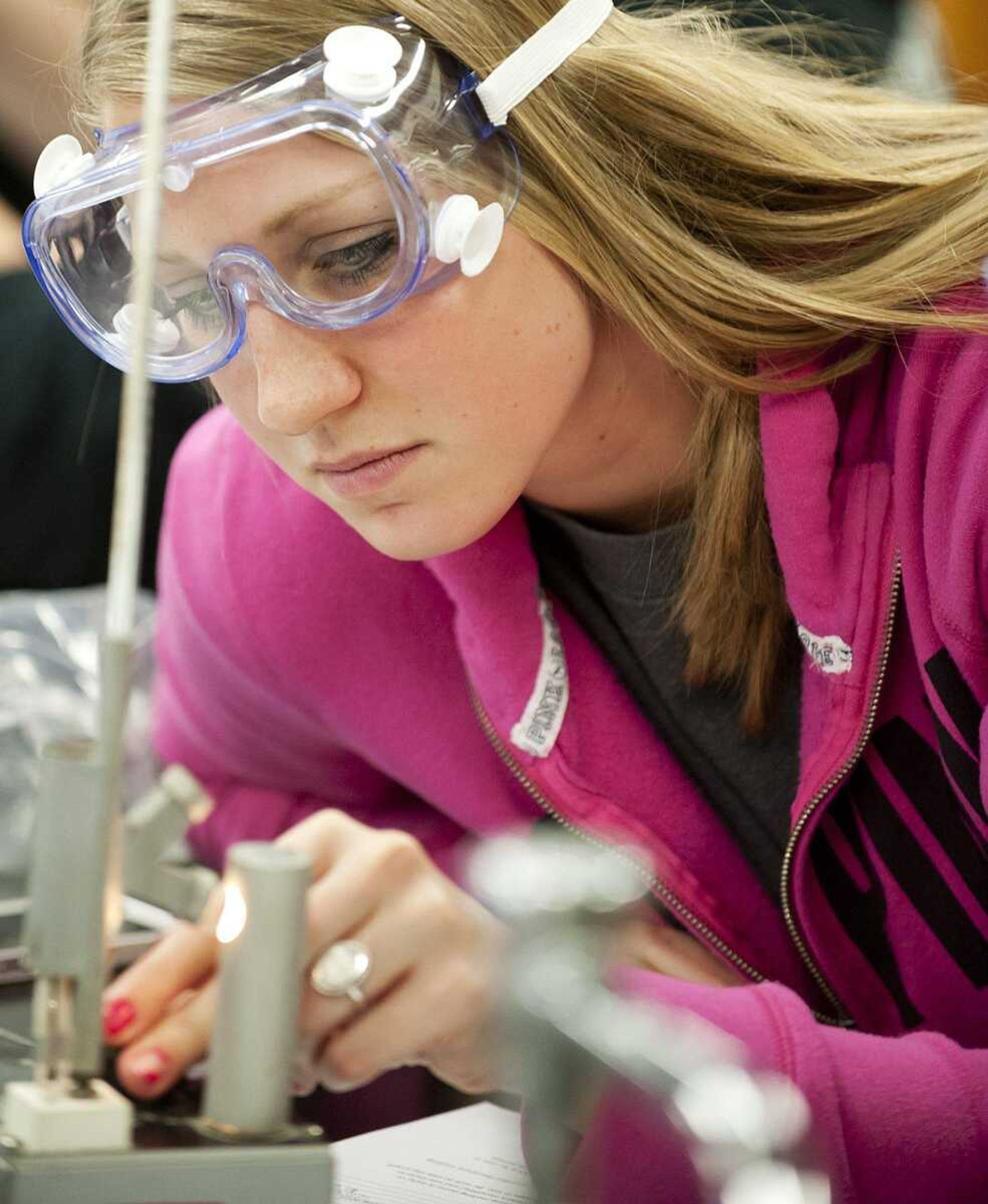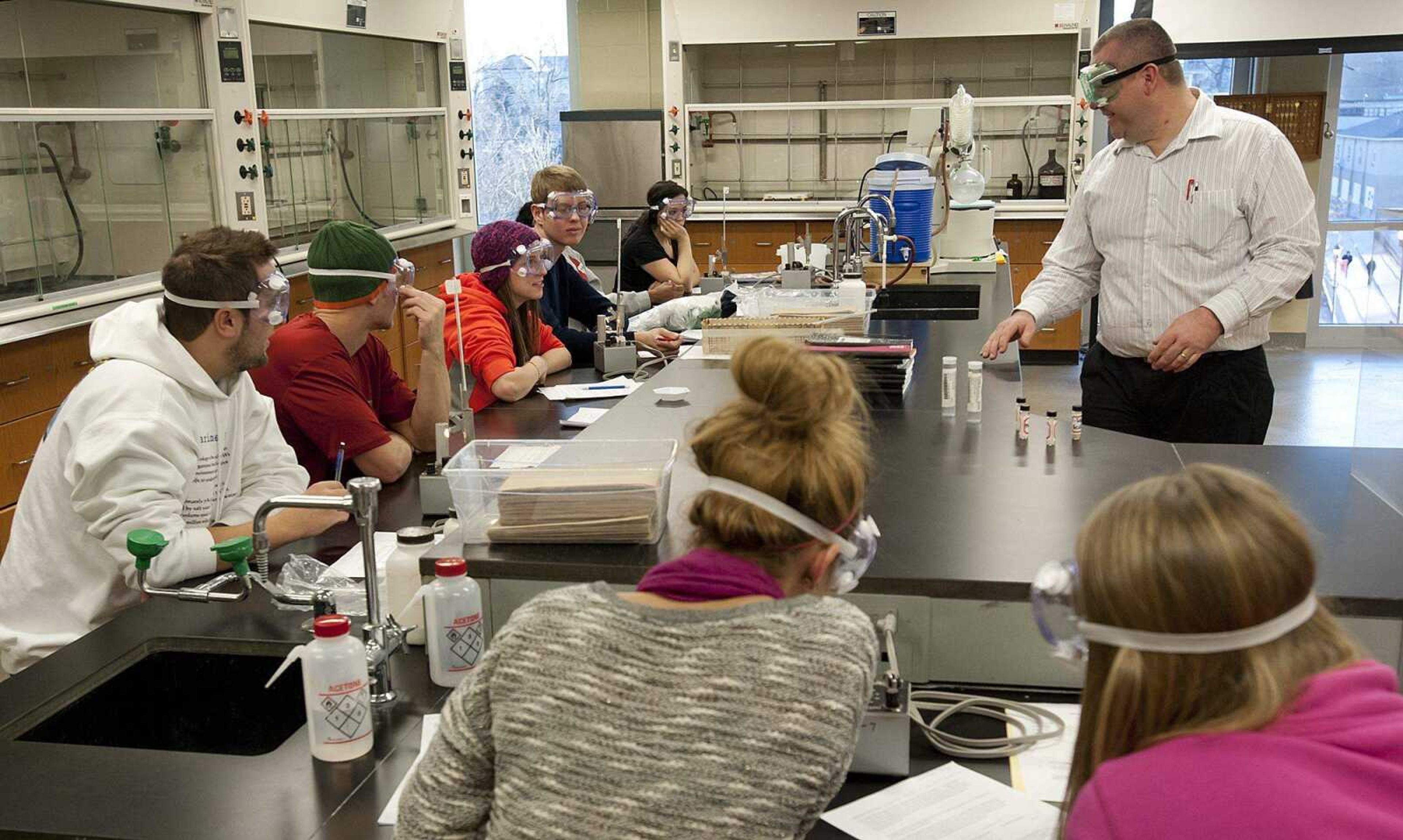University officials would welcome proposed higher education funding boost
Gov. Jay Nixon's plans to increase college and university funding would give Southeast Missouri State University a $2.32 million boost in fiscal year 2015. The university also could receive additional funding for science, technology, engineering and math fields, as well as mental health curriculum...
Gov. Jay Nixon's plans to increase college and university funding would give Southeast Missouri State University a $2.32 million boost in fiscal year 2015. The university also could receive additional funding for science, technology, engineering and math fields, as well as mental health curriculum.
Southeast's vice president for finance and administration Kathy Mangels said the university's budget for 2014 -- the current fiscal year -- is $103.9 million. The university's fiscal year runs from July 1, 2013, through June 30, 2014, Southeast news bureau director Ann Hayes said.
Mangels said the $2.3 million funding would go toward general university operations -- from faculty and staff salaries and benefits to utility costs. According to an Associated Press story, the governor has proposed distributing funds based on whether colleges and universities have met certain performance goals. Examples of performance goals, university president Kenneth Dobbins and Mangels said, are student retention; students with experiential learning as part of their curriculum; and passing licensure tests.
According to information from Nixon's office, total proposed core funding for two- and four-year institutions in fiscal year 2015 is $867.9 million.
Nixon also has asked four-year institutions to keep their in-state Missouri undergraduate tuition stable and Dobbins said that's the proposal that will go before the board of regents. Mangels said the current total cost per credit hour for an in-state undergraduate student is $228.75.

The university has a standing University Budget Review Committee made up of 30 representatives from throughout campus, which this year will have its first meeting Feb. 7, according to an email from Hayes. It is tasked yearly with recommending funding for budget proposals, plans and priorities, including tuition increases, in accordance with the university's strategic plan, according to a Dec. 11 news release from the university. The committee recommends a balanced budget to the president, who in turn, recommends the university budget to the board of regents, the release said.
"The members of our Budget Review Committee will be very appreciative of Governor Nixon's recommendation for a 5 percent increase. ... The members of our board of regents want to minimize the cost of education for our students, and Senate Bill 389 would have only allowed the university to raise tuition enough for a $400,000 increase to balance our budget. So approval of the governor's recommendation will allow us to keep tuition at its current levels," Dobbins said in the release.
Southeast also could receive about $1.3 million as part of a state STEM initiative, and Dobbins said the university is just starting to consider what to do with the funding, should it come through. " ... There are many options and many needs," he said. "I think it's really probably premature to talk about what we're going to be doing."
Dobbins said faculty could be hired; funds could be bonded to improve the science complex; or the university could buy equipment.
"There are just many opportunities for us to use that money, so right now, we haven't prioritized it."

Dobbins said Southeast also is scheduled to receive $1.3 million to $1.35 million through Caring Missourians II to be used over a three-year period for increasing mental health professionals. The appropriations would be used to increase graduates from several degree programs, including:
* Applied behavioral analyst (bachelor's degree program). An applied behavioral analyst often works with autistic children and adults, although the specialty also can be used in other fields.
* Applied behavioral analyst (master's degree program)
* Nursing (advanced practitioner master's/certificate)
* Nursing (BSN psychiatric specialty)
* Nursing (BSN developmental disabilities certificate)
* Speech therapists
"I think that's going to be very helpful for us and for the state," Dobbins said. He added there are only four universities in the state that can have applied behavioral analyst programs -- Missouri State, the University of Central Missouri, University of Missouri-St. Louis and Southeast.
"So I think that's going to help build our program to where it needs to be," Dobbins said. The university has the Southeast Missouri State University Autism Center for Diagnosis and Treatment.
If Southeast doesn't get a funding increase, it would probably need to raise fees, just because of inflation and continuing expenses, such as utilities, benefit costs, health and property insurance, Dobbins and Mangels said.
Starting with fall 2013, the per-credit-hour cost for in-state students increased $3.75, a 1.67 percent bump. Fees were held flat in fiscal years 2010 and 2011, but cumulatively they have risen less than 5 percent the last few years, Mangels said.
"... We've always kept our increases ... within the requirements of Senate Bill 389, which ties it to the change in the CPI [Consumer Price Index-Urban]," Mangels said.
Throughout the spring semester, Southeast will be watching the legislature make its way through the budget and all things higher education. Sen. Wayne Wallingford, R-Cape Girardeau, said he's "very optimistic" the proposed higher education funding will pass; however, it still has to go through the legislative process to see if revenue estimates match up with funding hopes. If it's not fully funded, he said, "it will at least get us in the right direction."
"Most people are in line to support higher education and the additional amount of money they want to see go to those programs," Wallingford said.
rcampbell@semissourian.com
388-3639
Pertinent address:
One University Plaza, Cape Girardeau, MO
Connect with the Southeast Missourian Newsroom:
For corrections to this story or other insights for the editor, click here. To submit a letter to the editor, click here. To learn about the Southeast Missourian’s AI Policy, click here.








